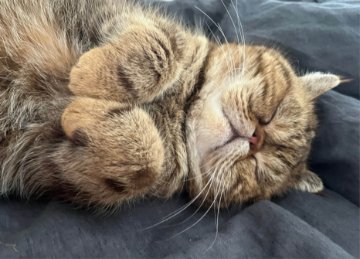Cat legislation aims to reduce the number of unwanted cats in the community and the number that are euthanised each year. Microchipping and registration will also ensure your cat is returned to you if it becomes lost.

Purr-tect your pet program subsidy offer
The City is pleased to support cat owners with a special subsidy offer for sterilisation, microchipping, and lifetime registration.
What’s included:
- $150 rebate towards the total vet fee for sterilising and microchipping your cat
- Waived $100 lifetime registration fee with The City.
This subsidy is available starting 31 October 2024 for a limited time only and will end once the allocated funds are exhausted.
Find out more by clicking the ‘registration’ link below. If you would like to apply for the subsidy offer, please fill out the cat subsidy application form to begin the application process. Terms and conditions apply.
Responsible cat ownership
Domestic cats make excellent companions because they are typically loving, playful, and clean. They are easy to care for and relatively low maintenance. However, owning a cat is a long-term commitment and their needs must be carefully considered before you take on this responsibility.
In addition, the City of Stirling promotes responsible cat ownership practices and encourages that cats:
- Be kept indoors after dark (or at least contained on their own property)
- Wear a bell on their collar to alert potential prey of their presence
- Be prevented from exhibiting “nuisance” behaviours, such as:
- Entering other people’s properties
- Creating excessive noise
- Urinating, spraying, or defecating on other people’s property or in public areas
- Preying on birds and other wildlife
- Fighting.
Ensuring you provide your cat with adequate food, water, and exercise, and contain it within your property will go a long way toward preventing your cat from engaging in “nuisance behaviour”.
Nuisance cats
Find out about what you can do about nuisance cats in your area.
Cat permits
A Cat Permit is not required for most domestic cat owners and is only issued under the following circumstances:
- If you own 2-3 cats and live in a fauna-protected buffer zone
- If you own 3 cats and live anywhere in the City.
Fauna-protection buffer zones extend 200 metres from the boundaries of cat-prohibited areas. A cat permit is required if you live within a buffer zone and own 2 or more cats.
For more information on responsible cat ownership, to obtain a cat permit, or to report your cat missing, please contact the City’s Customer Contact Centre on (08) 9205 8555.

.png)
